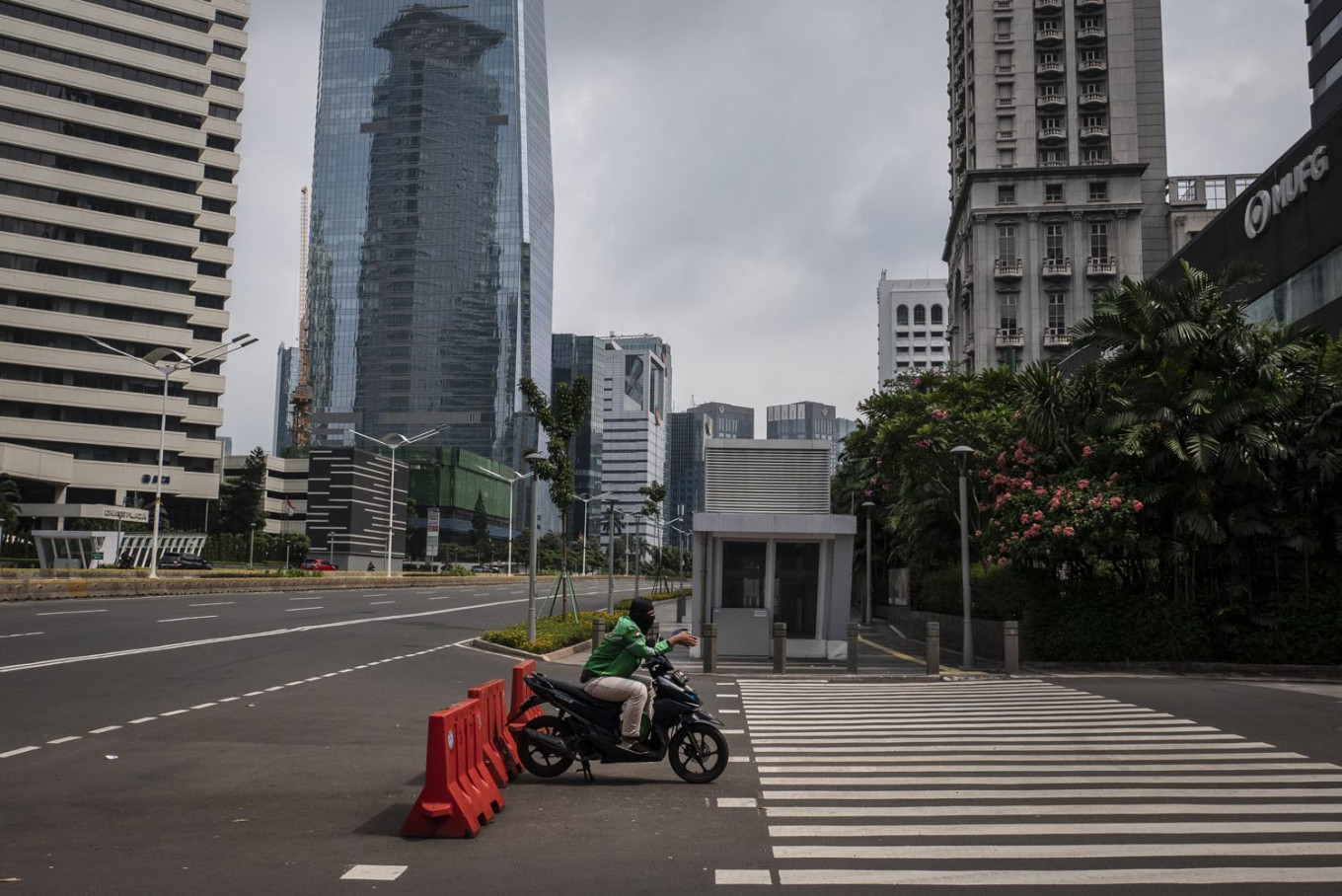Popular Reads
Top Results
Can't find what you're looking for?
View all search resultsPopular Reads
Top Results
Can't find what you're looking for?
View all search resultsProvinces with PSBB see decline in COVID-19 cases, in-patients, say regional leaders
Several designated referral centers in provinces that have imposed large-scale social restrictions have recorded fewer COVID-19 in-patients, according to Indonesia's COVID-19 task force.
Change text size
Gift Premium Articles
to Anyone
N
early every region that has imposed large-scale social restrictions (PSBB) has recorded a significant decrease in coronavirus cases, the national COVID-19 task force says, signaling an optimistic outcome from the implementation of the health protocols to fight the pandemic.
A number of governors convened via video conference on Tuesday morning to report up-to-date results from the PSBB in their respective provinces. Several designated referral centers across the provinces had recorded fewer COVID-19 in-patients after they put in place the mobility restrictions, said COVID-19 task force chief Doni Monardo.
“One of the referral centers in West Sumatra, M Jamil Hospital in Padang, reported 46 COVID-19 in-patients of a total capacity of 112 beds,” he said.
“Meanwhile, Hasan Sadikin Hospital in [Bandung], West Java, recorded 30 COVID-19 patients of its total capacity of 135 beds.”
Read also: 'Reinfected' North Sumatra COVID-19 patient 'feels fine, but stressed'
The Jakarta administration had also previously reported that the number of in-patients had dropped to fewer than 60 percent of the confirmed cases in the region -- the hardest hit by the coronavirus in the country -- after imposing the PSBB, Doni said.
The provincial administration of Central Java, which has only imposed partial mobility restrictions, reported that it would continue carrying out contact-tracing on a cluster of attendees of a mass Islamic event in Gowa, South Sulawesi, which has yielded 1,118 cases so far.
West Sumatra Governor Irwan Prayitno, meanwhile, said the province had not recorded an influx of imported COVID-19 cases – transmission via visitors from other regions – since the administration imposed the PSBB on April 22.
“The number of patients under treatment [PDPs] has decreased from 12 percent to 4 percent [of the total cases] since the PSBB,” he said during the meeting, adding that the administration had not recorded any new clusters from the region’s 299 confirmed COVID-19 cases since the restrictions first took effect.
At least 20 regencies, municipalities and provinces across the country have imposed the PSBB since its inception in Jakarta on April 10. Initially imposed for two weeks, the mobility restrictions have been extended for another 14 days in many of the regions, with Jakarta extending the PSBB for 28 days until May 22.
Read also: Jakarta's curve flattened? Experts question government's claim
Most experts agree that mobility restrictions have helped curb infections but they also warn the government not to jump the gun by deciding to relax curbs without taking into account further epidemiological studies to assess the scale of the pandemic.
As of Tuesday, Indonesia had confirmed 14,749 COVID-19 cases and 1,007 deaths linked to the disease, according to the central government's data.
Doni went on to say that President Joko “Jokowi” Widodo had previously said that the central government would give regional administrations the freedom to choose the types of mitigation measures they considered to be most compatible with their respective needs and the characteristics of their populations.
“Regional administrations are allowed to adopt an approach [that is relevant] to their respective situations, such as using local wisdom to ensure public compliance with the health protocols,” he said.










